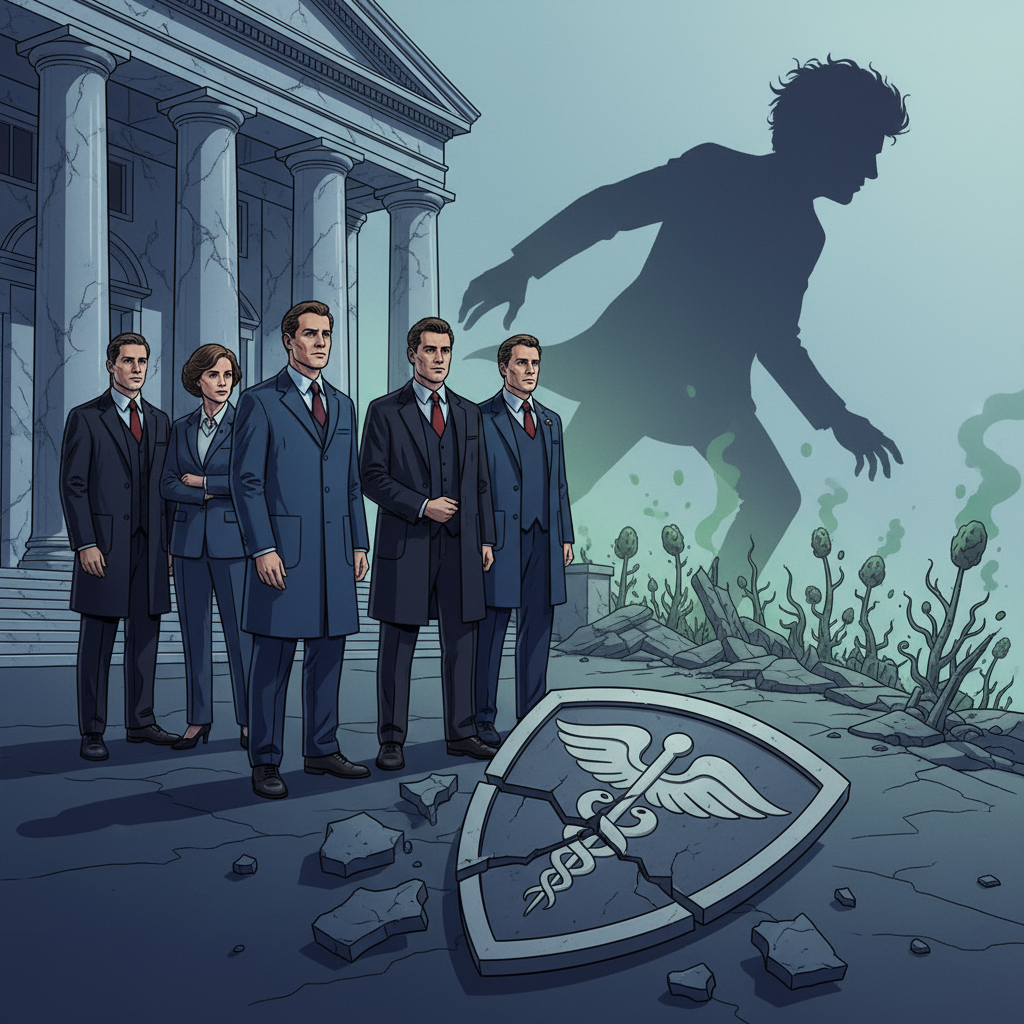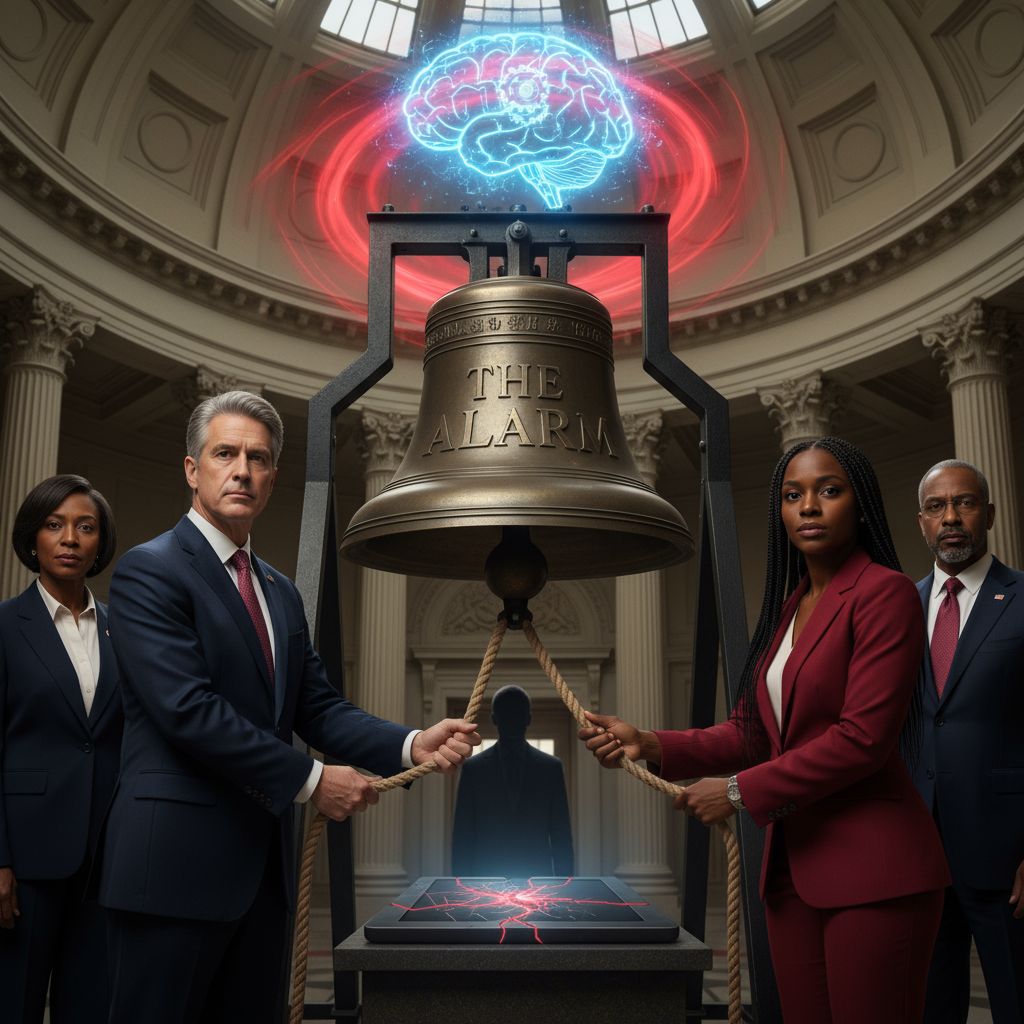A Unified Warning: Six Former Surgeons General Declare RFK Jr. a Threat to American Health

The American political landscape is no stranger to heated rhetoric and stark disagreements. However, a recent development has sent ripples through the nation, sparking serious concerns and igniting debate across the political spectrum. In an unprecedented, unified statement, six former U.S. Surgeons General, individuals who have served as the nation’s chief medical officers under both Republican and Democratic administrations, have issued a stark warning: Robert F. Kennedy Jr. poses a significant danger to the health and well-being of the American public. This collective declaration, originating from figures traditionally above the partisan fray, underscores the gravity of their concerns and demands our attention.
A Bipartisan Alarm: Uniting Against Misinformation

The very act of six former Surgeons General – spanning decades of public service and diverse political affiliations – coming together to issue such a strong condemnation is extraordinary. These are individuals whose careers have been dedicated to public health, grounded in science, and focused on protecting and improving the lives of ordinary Americans. Their roles have historically demanded a non-partisan approach, relying on evidence-based medicine and public health principles regardless of who occupied the White House. This makes their current unified stance against RFK Jr. all the more impactful. It signals that their concerns transcend typical political differences and delve into fundamental issues of public health, scientific integrity, and the potential for real-world harm.
The crux of their warning centers on Kennedy’s long history of promoting scientifically unsubstantiated claims, particularly concerning vaccines and public health policies. These aren’t minor disagreements; they are fundamental challenges to established medical consensus and could, in their view, have devastating consequences for national health. When individuals with such deep understanding of public health infrastructure and disease prevention voice such concerns, it’s a call to heed their expertise, not to dismiss it as mere political maneuvering.
The Dangerous Allure of Anti-Science Narratives
Kennedy’s rise in political prominence has been fueled, in part, by his ability to tap into a growing distrust of established institutions, including the scientific and medical communities. His rhetoric often blends legitimate concerns about corporate influence or government transparency with unsubstantiated claims about public health interventions. This creates a fertile ground for misinformation, which can be particularly insidious because it often contains a kernel of truth or a plausible-sounding argument that makes it difficult for the average person to discern fact from fiction.
For instance, his long-standing promotion of the debunked link between vaccines and autism has been a cornerstone of his public profile. Despite overwhelming scientific evidence to the contrary, these narratives persist, leading to vaccine hesitancy and a potential resurgence of preventable diseases. The former Surgeons General understand the historical context of such misinformation, having witnessed firsthand the devastating impact of unaddressed public health crises and the critical role of widespread vaccination in eradicating once-common ailments like polio and measles. Their warnings are not theoretical; they are rooted in the painful lessons of history and the present-day risks of declining vaccination rates.
The Real-World Consequences of Undermining Public Trust
The implications of a prominent public figure like RFK Jr. actively sowing distrust in scientific consensus extend far beyond individual health choices. In a public health crisis, such as a pandemic, a unified and trusted message from health authorities is paramount. When that trust is eroded by figures spreading misinformation, it can lead to widespread confusion, non-compliance with vital public health measures, and ultimately, preventable illness and death. The recent COVID-19 pandemic offered a stark and tragic illustration of these consequences, where rampant misinformation hindered effective public health responses and contributed to excess mortality.
The Surgeons General are highlighting the grave danger of a narrative that systematically dismantles the public’s confidence in science and medicine. If the populace loses faith in the expertise of doctors, scientists, and public health officials, it becomes incredibly difficult to address any health challenge, from chronic diseases to emerging pathogens. This erosion of trust jeopardizes not only individual health outcomes but also the collective health security of the nation. Their warning is a plea to protect the foundational principles upon which effective public health relies – trust, science, and collective action.
Conclusion: A Critical Juncture for Public Health
The unprecedented warning from six former Surgeons General is more than a political statement; it’s a profound alarm about the future of public health in America. It calls for a critical examination of the information we consume, the narratives we amplify, and the leaders we choose to trust. In an era saturated with information, discerning truth from falsehood has become a vital civic responsibility.
Kennedy’s platform, say these eminent public health leaders, is not just intellectually unsound; it endangers lives by fostering skepticism towards proven medical interventions and sound public health advice. Their collective voice serves as a stark reminder that some issues transcend partisan divides, demanding a unified front in defense of scientific integrity and the well-being of the nation. As citizens, it is our responsibility to listen to these experienced voices, evaluate claims based on credible evidence, and safeguard the public health infrastructure that protects us all. The stakes, according to those who have led America’s health, could not be higher.

